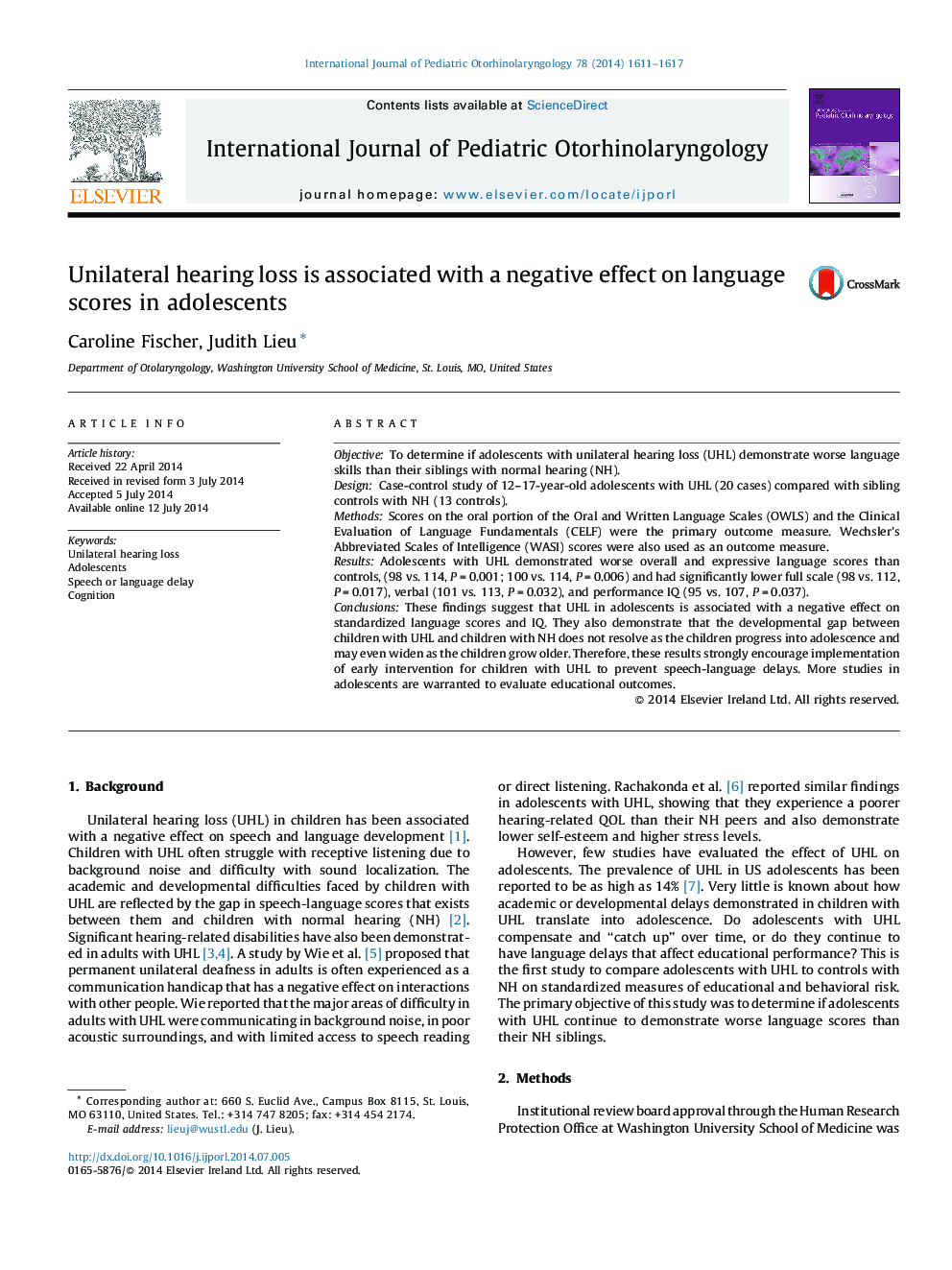| Article ID | Journal | Published Year | Pages | File Type |
|---|---|---|---|---|
| 6213735 | International Journal of Pediatric Otorhinolaryngology | 2014 | 7 Pages |
ObjectiveTo determine if adolescents with unilateral hearing loss (UHL) demonstrate worse language skills than their siblings with normal hearing (NH).DesignCase-control study of 12-17-year-old adolescents with UHL (20 cases) compared with sibling controls with NH (13 controls).MethodsScores on the oral portion of the Oral and Written Language Scales (OWLS) and the Clinical Evaluation of Language Fundamentals (CELF) were the primary outcome measure. Wechsler's Abbreviated Scales of Intelligence (WASI) scores were also used as an outcome measure.ResultsAdolescents with UHL demonstrated worse overall and expressive language scores than controls, (98 vs. 114, PÂ =Â 0.001; 100 vs. 114, PÂ =Â 0.006) and had significantly lower full scale (98 vs. 112, PÂ =Â 0.017), verbal (101 vs. 113, PÂ =Â 0.032), and performance IQ (95 vs. 107, PÂ =Â 0.037).ConclusionsThese findings suggest that UHL in adolescents is associated with a negative effect on standardized language scores and IQ. They also demonstrate that the developmental gap between children with UHL and children with NH does not resolve as the children progress into adolescence and may even widen as the children grow older. Therefore, these results strongly encourage implementation of early intervention for children with UHL to prevent speech-language delays. More studies in adolescents are warranted to evaluate educational outcomes.
